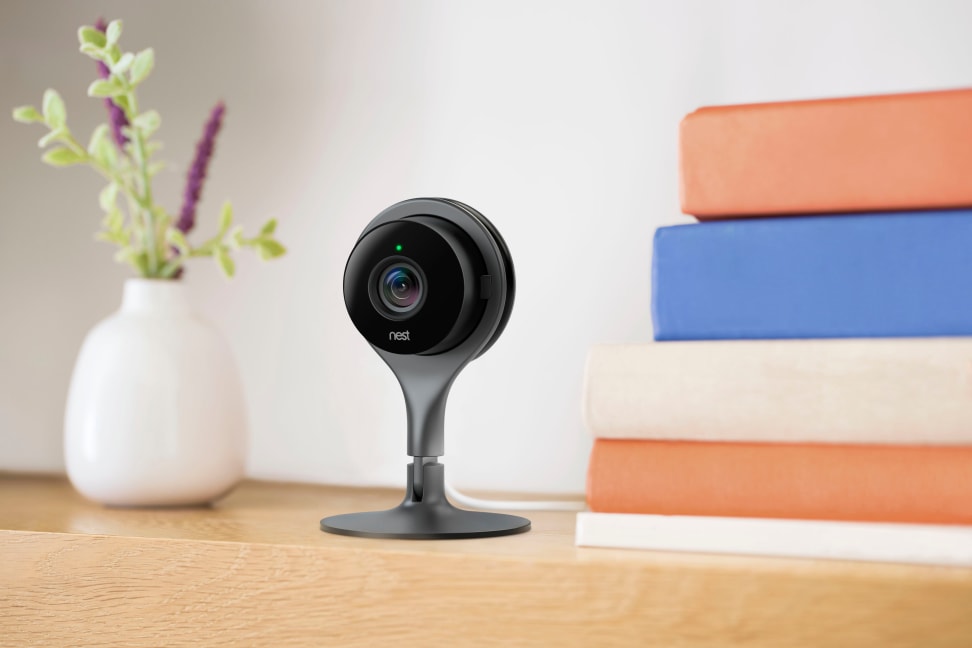Don’t let your smart home gadgets get hacked—here’s 6 tips to prevent it
You don’t have to be a tech whiz to deter hackers.
 Credit:
Nest
Credit:
Nest
Recommendations are independently chosen by Reviewed's editors. Purchases made through the links below may earn us and our publishing partners a commission.
Some people are hesitant to purchase smart home devices because they fear security breaches. Any device that connects to the internet has the potential to be hacked, but there are ways to keep your smart home devices secure without calling in the professionals.
You don’t need to be a tech whiz to keep your smart home products and their data safe. Here are six beginner-friendly tips on securing connected devices.
1. Buy from trusted brands

The Google Home
Be proactive in your security efforts by researching smart home brands before you buy. Look into past security problems with the product you want to purchase, and read up on the maker’s security policies.
When in doubt, it's better to go with a well-known manufacturer, like Amazon or Google, as these companies have comprehensive security features built into their devices.
2. Install updates right away
Perhaps the easiest and most effective way to keep your smart home devices secure is to install software updates as soon as possible. Updates often contain patches for newfound vulnerabilities. If you put off installing the fixes, you’re opening yourself up for exploitation.
Some devices may have an option to automatically update when new versions are released, and it may be best to turn on this feature if you often forget to manually update your devices.
3. Use all included security features

Nest Two-Factor Authentication
Certain smart devices have additional security features for you to opt into, which is always a good idea.
For instance, Nest recently introduced two-factor authentication for its app. You can activate this additional security feature under the “Account Security” option in the app’s menu—doing so can prevent hackers from accessing your account, even if they have your username and password.
Get a Nest Learning Thermostat on Amazon for $219
4. Change default passwords
Another important security measure is to change your connected device’s default password. This password is your first line of defense against breaches, and if an attacker gets hold of the manufacturer’s default settings, you’re in trouble.
Change the password as soon as you set up a new smart home device, and use a unique code with both numbers and symbols. And whatever you do, don’t use your name, birthday, or generic words like “password.”
5. Connect to a guest network

Connecting smart home devices to a guest Wi-Fi network can increase security.
If you have a guest Wi-Fi account set up at your home, you might consider connecting your less-intrusive smart devices to this network instead of your main one. While this won’t necessarily stop hackers from compromising those devices, it will make it more difficult for an attacker to then move onto more sensitive devices on your main network, such as a computer, phone, or security camera.
Most modern Wi-Fi routers, such as the Netgear Nighthawk, have guest network options, so even if you don’t already have one set up, it should be easy to create one. Check the device’s manual to see if it’s an option with your router.
Get a Netgear Nighthawk Router on Amazon for $159
6. Disable unused features
Finally, it’s a good idea to disable any smart features that you don’t plan to use. For instance, if you don’t use the voice-control option on your smart TV, switch it off. This minimizes the various ways attackers can gain access to your device, as well as the amount of data the gadget will collect (and potentially compromise)—it’s a win-win.
With these six easy steps, you'll be able to make your smart home significantly more secure against attackers, so you can have peace of mind while you enjoy the smart features of your connected devices.

